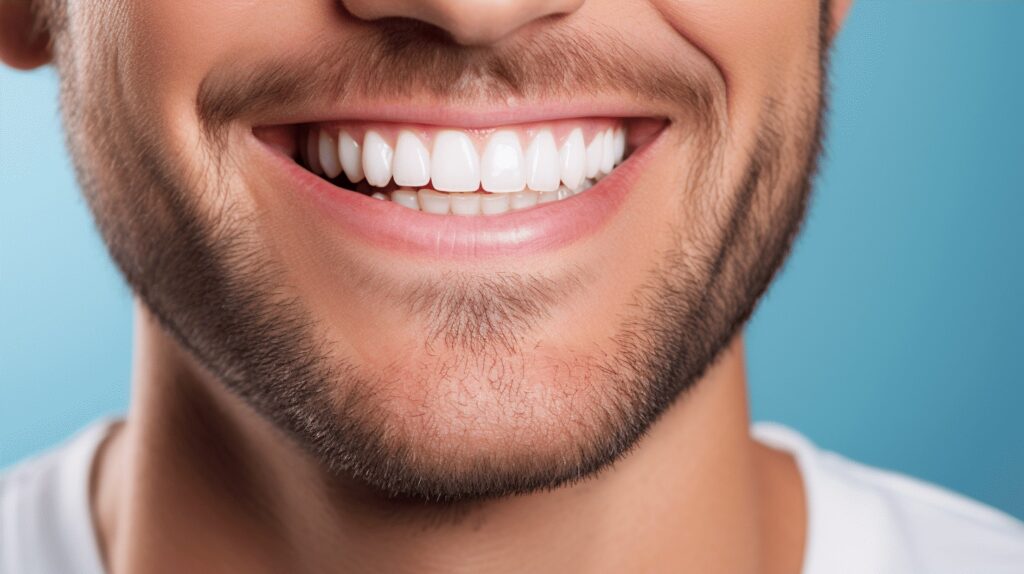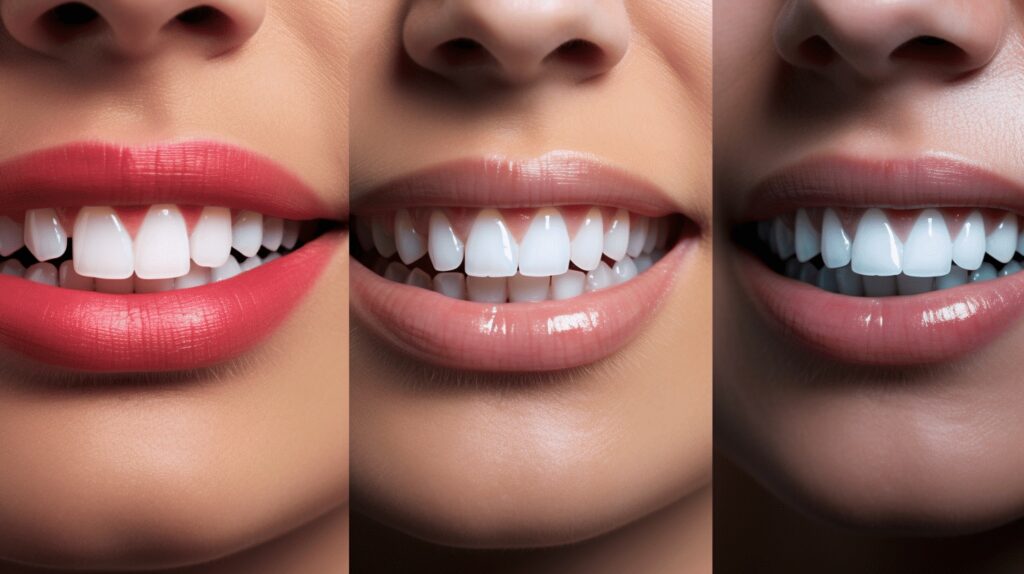What if we told you that there’s a way to prevent most dental issues before they even begin? Intriguing, right? Preventative Dentistry tips
We all know the importance of regular brushing, flossing, and dental check-ups. But let’s take a closer look at the broader framework these practices fall under – preventive dentistry. This incredible approach is all about maintaining a healthy, bright smile, and keeping oral diseases at bay. Don’t wait until you start having toothaches or gum issues. Take control of your oral health today!
Let’s embark on this enlightening journey about preventive dentistry, its benefits, various procedures, and its role for children and adults alike. We’ll also discuss challenges and the promising future of preventive dentistry. Remember, the key to a confident smile starts with prevention!🦷👩⚕️👍
Table of Contents
Understanding Preventative Dentistry
Definition
Preventative dentistry refers to a branch of dentistry that focuses on maintaining oral health in order to prevent dental diseases before they occur. It is a proactive approach that incorporates regular dental check-ups, cleaning, and healthy habits, aiming to keep tooth decay, gum disease, and other oral health problems at bay. This holistically preventive approach allows us to achieve optimum oral health, leading to less invasive and expensive treatments in the future.
Think of it this way: preventative dentistry is kind of like your friendly neighborhood watch. Just as the neighborhood watch works to prevent crime before it happens, preventative dentistry aims at preventing dental issues before they become problematic. 🦷
Benefits of Preventative Dentistry
The advantages of preventative dentistry are tremendous, particularly when considering long-term oral health. Here are just a few ways that preventative dentistry can help:
- Less Disease: Regular dental check-ups help catch issues early on, reducing the likelihood of more serious diseases developing over time. It’s like catching a small crack in your wall before it becomes a gaping hole.🔍
- Reduced Costs: Taking care of your teeth now can save you a significant amount of money in the future. Think of it as an investment in your oral health. The cleaner your teeth now, the less likely you are to need pricey procedures later! 💰
- Brighter Smile: Regular dental cleanups, brushing, and flossing (the cornerstones of preventative dentistry) can make your smile brighter and healthier, because who doesn’t love a shiny smile? 😃
In a nutshell, preventative dentistry is a long-term, cost-effective, and smile-brightening strategy for maintaining optimum oral health. So don’t wait for a toothache to visit your dentist, make preventative care a priority today and enjoy the dividends of a healthy smile years down the line. After all, as we like to say around here, a healthy mouth is a happy mouth!
Components of Preventative Dentistry
Preventive dentistry is your first line of defense against the common dental issues that may compromise your beautiful smile. This approach revolves around various elements, all customized to keep your teeth healthy and your oral hygiene at its best. As the old adage goes, “Prevention is better than cure.” But, what does preventive dentistry actually involve? Let’s dive into it!
Proper Dental Hygiene
First and foremost, the cornerstone of preventative dentistry involves good old-fashioned brushing and flossing at home. 😁
- Brushing: It’s recommended to brush at least twice a day, ideally after meals. This helps keep your teeth free from plaque, the colorless film of bacteria that leads to tooth decay and gum disease. Make sure you’re using a toothpaste that contains fluoride, a mineral that strengthens tooth enamel and fights cavities.
- Flossing: Flossing once a day is also key in removing plaque and food particles that your toothbrush can’t reach. Remember, those hidden corners of your mouth need love too!
An added bonus? This routine not only keeps your mouth healthy but also contributes to good overall health. So, keep up with that minty-fresh routine.
Regular Check-ups
Regular dental check-ups and cleanings play a crucial role in preventative dentistry. We recommend visiting your dentist at least twice a year. These routine visits can help spot potential issues early, making treatment more effective and less costly.
During these visits, your dentist will likely:
- Conduct a thorough oral examination.
- Clean your teeth to remove plaque and tartar.
- Check for signs of gum disease.
- Screen for oral cancer.
- Routine evaluation of overall dental health and hygiene.
Sticking to your regular check-ups will ensure that any dental concerns are promptly addressed, saving you from painful and costly conditions down the line.
Balanced Diet
Last but certainly not least, a balanced diet is essential for healthy teeth and gums. 🍎
A diet rich in fruits, vegetables, lean proteins, and dairy products will provide necessary nutrients for optimum oral health. Particularly, calcium and vitamin D are essential for healthy teeth.
Avoiding sugary drinks and snacks can significantly decrease the risk of cavities. After all, bacteria in the mouth turn sugars into acids, which can erode tooth enamel, paving the way for decay.
With the right blend of proper dental hygiene, regular check-ups and cleanings, and a balanced diet, preventative dentistry can become your secret weapon against dental problems. Maintain these practices, and you’ll be well on the road to preserving that flawless smile and keeping any tooth troubles at bay. Remember, a healthier mouth leads to a healthier you!
Various Preventative Dentistry Procedures
The journey to a captivating smile begins with a few simple steps to maintain good oral hygiene. 🦷 With preventative dentistry, we can ensure optimal dental health by stopping issues before they escalate into costly damage. Let’s delve into some of the invaluable procedures that keep our pearly whites shining bright and healthy.
Dental Cleanings
Regular dental cleanings are an essential part of preventative oral care. As the most common dental procedure, cleanings combat plaque build-up and ensure your teeth stay radiant and cavity-free. They’re not only an investment in your oral health but also a confidence booster as you flash your bright, clean smile. 😁
- Professional teeth cleaning removes tartar that home brushing cannot.
- Regular check-ups can help identify potential issues early.
- Cleanings improve the health of your gums, preventing gum disease.
Fluoride Treatments
Fluoride treatments represent another pillar of preventative dentistry. This mineral helps to strengthen tooth enamel, making it more resistant to decay. It’s often applied as a gel, foam, or varnish, and receiving these treatments regularly can significantly reduce the risk of cavities.
- It fights tooth decay by making teeth more resistant to harmful acids.
- Children are often recommended fluoride treatments as their teeth are still developing.
- Fluoride treatments can help reverse early stages of tooth decay.
Dental Sealants
Dental sealants act as a protective shield for your teeth, especially the often hard-to-reach molars and premolars. The sealants are a thin, protective coating that adheres to the enamel of your teeth, acting as a barrier against decay-causing bacteria.
- They are most commonly used for children but can also benefit adults.
- Sealants can protect teeth from decay for up to 10 years.
- Dental sealants are invisible and do not affect your smile or eating.
Mouthguards
Finally, consider investing in a mouthguard if you are prone to grinding your teeth at night or active in contact sports. A mouthguard, custom-fit by your dentist, can safeguard your teeth from potential damage.
“You don’t have to brush all your teeth, just the ones you want to keep.”
That old dental joke sums up the importance of every preventative step we can take towards preserving our dental health. After all, a healthy mouth is a happy mouth! 😄 To best understand the right preventative dentistry procedures for your personal needs, always consult with your dental professional.
Preventative Dentistry for Children and Adults
In the realm of oral health, we often hear the adage, “Prevention is better than cure,” and it couldn’t be more accurate. A lifetime of excellent oral health starts with a strong foundation of preventative dentistry. Regardless of your age, preventative measures are crucial in preserving your pearly whites. But what exactly is preventative dentistry? Let’s delve into this topic, focusing particularly on children and adults Preventative Dentistry tips.
The Importance of Preventative Dentistry in Children
Have you ever wondered what the fuss about “milk teeth” is? After all, they will fall off one day, right? Contrary to this common misconception, early oral health habits can set the tone for a lifetime. 😲
- Right from infancy, caring for a child’s teeth helps prevent cavities and tooth decay, problems that can lead to pain, concentration problems, and other dental issues in adulthood.
- Early preventative measures teach children the importance of good oral hygiene, establishing a routine they will carry into adulthood.
- Regular dental check-ups from a young age enable early detection of potential problems, simplifying treatment and limiting future costs.
Taking the first steps on a journey toward a confident, healthy smile can be as simple as regular brushing and flossing, balanced nutrition, and making dental check-ups a fun, educational experience rather than a dreaded event.
Preventative Practices for Adults
Growing older doesn’t mean saying goodbye to our oral health responsibilities. If anything, it’s the opposite – the need for strong oral hygiene practices only increases with age! As adults, many elements can affect the health of our teeth and gums.
- Regular maintenance: Brushing and flossing at least twice daily helps to remove plaque, thereby preventing cavities and gum disease.
- Healthy diet: What we eat has a significant impact on our oral health. A balanced intake of vitamins and minerals helps keep not just our bodies but our mouths healthy, too! 🥦🍊
- Regular Dental visits: Regular dental examinations and cleanings are the key to detecting any issues early and ensuring that our teeth last a lifetime Preventative Dentistry tips.
As adults, we must take a proactive stance in maintaining our oral health, not just for ourselves but also as role models for the younger generation. The influence of your healthy habits can teach the kids around you the importance of good oral hygiene Preventative Dentistry tips.
Preventative dentistry, for both children and adults, is not just about maintaining a great smile. It’s about adopting a lifestyle that prioritizes health and well-being. Alongside daily oral hygiene practices, consistent visits to your friendly neighborhood dentist can make all the difference. After all, our teeth are for a lifetime, and how we care for them impacts not just our oral health, but our overall well-being too. 😄 Tooth be told, prevention genuinely is the best dental medicine!
Challenges Faced in Preventative Dentistry
Maintaining oral health goes beyond regular brushing or flossing. It includes periodic dental checkups aimed at identifying potential issues before they transform into complex problems. This is the essence of preventative dentistry. 💡 But, good oral hygiene practices and preventive dental care are continuously confronting challenges. Let’s delve in and explore some of these pressing issues.
Financial Constraints 💸
First on the list is the economic hurdle. Often, preventative dental care comes at a high cost, making it less accessible to many.
- The cost of routine check-ups, professional cleanings, fluoride treatments, and dental sealants can be overwhelming for folks without dental insurance Preventative Dentistry tips.
- It’s also worth noting that even those with insurance might face financial struggles, considering that most plans only cover preventive services to a certain degree.
- Furthermore, there’s the income disparity issue. Preventive dental care is not equally accessible to everyone. Lower-income individuals and families often struggle to afford even the most basic dental care services.
Striving for oral health equity is the key! It involves making dental care affordable and available to everyone, regardless of their financial capabilities.
Lack of Awareness 🙇♂️
Next up is the awareness barrier. Numerous individuals aren’t fully aware of the importance of preventative dental care.
- Many people tend to view dental visits as a necessity only when faced with intense pain or discomfort.
- Misconceptions that one should visit the dentist only for fixing problems rather than preventing them are also widespread.
- Additionally, there’s a general lack of information regarding the correlation between oral health and overall health.
Raising awareness about the significance of preventative dentistry, and making information readily available about the same could aid in overcoming this challenge.
Fear of Dentistry 💀
Then comes dental fear or anxiety. It is a significant factor preventing many from seeking timely dental care.
- Dental phobia can stem from past painful experiences, fear of the unknown, or even bad dentist encounters.
- It subsequently leads to avoidance of dental visits until it becomes utterly necessary due to acute pain or dental issues.
Offering a soothing, welcoming clinical environment and adopting non-threatening communication strategies may help mitigate this issue Preventative Dentistry tips.
Facing these challenges head-on is crucial for achieving optimal oral health among the masses. The journey might be arduous, but reaching the destination is surely worth every effort. 🌈
The Future of Preventative Dentistry
Nestled comfortably between our tongue-tickling ice cream spoons and sourdough pizzas lies an ironclad warrior, one whose dental diligence isn’t always acknowledged – Preventative Dentistry. As the name suggests, it aims at safeguarding our oral empire from the invasion of tooth decay, gum diseases, and other dental disorders, even before they start knocking at the gates. But, what if we told you that this modern dental titan is continuously evolving, becoming more efficient and accessible? Yes, the future of Preventive Dentistry is a spectacle where engaging technology and increasing awareness coalesce into a fascinating, tooth-focused tale.
Progressive Technology
Ah, technology. Leading an era of disruption in every field, it has interestingly sunk its virtual teeth into dentistry as well. Let’s face it, nobody fancies invasive drills or consistent dental appointments! Technology has dawned as a relief, tweaking traditional dental procedures into less invasive and more efficient ones Preventative Dentistry tips.
- Dental Diagnostics: Advanced imaging techniques not only provide a 3-D vision of the mouth that helps in precision but also reduce radiation exposure, making it safer.
- Teledentistry: This one is like having a dentist in your pocket. Virtual consultations, treatment planning, and follow-ups are only a click away.
- Artificial Intelligence: From assessing dental health through photographs to predicting problems based on medical records, AI is revolutionizing dental assessment and treatment plans.
The rapid integration of technology does not merely enhance the professional practice; it permeates every aspect of preventive dentistry, making it more accessible and user-friendly.
Increasing Awareness
On the other side of this coin resides an informed, conscious, and proactive generation. With quick access to information, people are beginning to understand the importance of preventive measures, jolting them out of the ‘Only-when-it-hurts’ mindset.
- Knowledge is Power: Through comprehensive guides, knowing what, why, and when for dental health is no longer an enigma.
- Wellness Programs: Initiatives like school-based dental sealant programs are becoming popular in effectively preventing tooth decay in children.
- Insurance Coverage: Realizing the gravity of preventive dentistry, insurance companies are providing schemes that cover regular dental check-ups, cleanups, fluoride treatments, and more.
The shift from corrective to preventive treatment opens up a cascade of possibilities for the future of dentistry. As we enhance our collective awareness, we strengthen our endeavors to holistically improve and maintain our oral health Preventative Dentistry tips.
The future of preventive dentistry is a promising story written by progressive technology’s innovative pen and the ink of growing awareness. It’s not merely about harboring healthy teeth; it’s about embracing a healthier lifestyle altogether. Brace yourselves, for the future is dentally bright! 💫
Conclusion
Embracing a culture of preventive oral care not only offers the ticket to a life free from severe dental issues but is also a sound investment for your overall health. As we’ve detailed, preventive dentistry’s role is central to maintaining our dental health, it keeps us healthy overall and saves us money in the long run Preventative Dentistry tips.
While we’ve highlighted some challenges in accessing preventive dentistry, like financial constraints, lack of awareness, and fear of dental procedures, we also illuminated the way forward. Increased awareness about preventive care, advancements in dental technology, affordable and inclusive dental services are contributing to a brighter future for oral healthcare.
At Wilshire Smile Studio, we believe that everyone deserves a healthy, beautiful smile. Our experienced team of professionals is here to guide you through every step of your dental health journey. We offer a wide range of services, including preventive dentistry, with flexible financing options to make dental care accessible to everyone. Partner with us in prioritizing your oral health today for a healthier, happier tomorrow! 😊🦷🌟
Frequently Asked Questions
1. What is preventative dentistry?
Preventative dentistry refers to the practice of taking care of your oral health to prevent dental problems such as cavities, gum disease, and tooth loss. It includes regular dental check-ups, cleanings, and maintaining good oral hygiene habits.
2. Why is preventative dentistry important?
Preventative dentistry is important because it helps in early detection and prevention of dental problems, saving you from discomfort, expenses, and potential complications. It promotes long-term oral health and enhances overall well-being.
3. What are some common preventative dentistry measures?
Common preventative dentistry measures include regular brushing and flossing, limiting sugary foods and drinks, using fluoride toothpaste, getting dental check-ups every six months, getting dental cleanings, and wearing mouthguards during physical activities.
4. Can preventative dentistry help with bad breath?
Yes, preventative dentistry can help with bad breath. Regular dental cleanings remove plaque buildup, which can be a common cause of bad breath. Dentists can also identify underlying oral health issues that may contribute to halitosis.
5. At what age should preventative dentistry start?
Preventative dentistry should start as early as possible. Children should have their first dental visit by the age of one or when their first tooth erupts, and regular check-ups and cleanings should continue throughout their lives.





